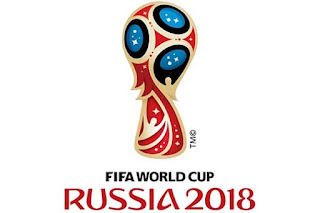The 19th edition of the FIFA Football World Cup is currently in progress in South Africa. The one month long extravaganza promises to be a huge success.
Here is a short quick look on what makes the football World Cup a hugely popular and economically successful event.
- South Africa won the bid to host the Cup in May 2004. With the event scheduled in June-Jul 2010, the nation took up six years of focussed development as it prepared for the World Cup. This extensive preparation created a mass economic activity benefiting the country. It also generated a lot of employment - helping it's people.
- World Cup goes to Africa. For the first time, this premier tournament is being played in the African continent - with South Africa acting as the host. As the nation displays its capabilities of hosting big ticket events, it will open up various avenues for business in South Africa and across Africa.
- National teams of 204 nations attempted qualification to gain an entry into the final draw of 32. Net result - some sort of economic activity across these 204 nations resulting in economic benefits (however minuscule)
- Preparation of world class football facilities. These are great investments and would continue to reap benefits for South Africa in the coming many years. It would also help in ensuring better training facilities for upcoming footballers.
- Benefits for locals. Preparations for this World Cup have improved the accommodation facilities - both affordable and high-end. Public transport infrastructure has been greatly improved across the 10 cities hosting the matches. Steps have been taken to ensure safety of the teams and the visiting fans. Net result - an improved quality of life for local people.
- Monetary benefits for the team. Each team will get a huge sum of money for participating in the World Cup from FIFA - with an assured pay out of 8 Million USD. The winners get 30 Million USD. This money can be further investment of the game in their respective countries.
- As people travel to South Africa to support their nation at the cup, they will spend a lot of money. This includes extensive travel costs, staying costs and day-to-day spendings. This would greatly benefits travel organizers, airplane companies and locals.
- The Cup has also triggered huge spendings on media rights, advertising rights et all. This has created a chain of economic activity with a trickle down effect.
- And as people see the beauty of South Africa, they would plan their future vacations in this scenic country. And as the word of mouth propagation would pass on to others - it would generate a lot of travel revenues in the coming years for South Africa and other African counties.
If you are interested in further details, get a copy of a report from Goldman Sachs on the Economics of the World Cup.
The World Cup 2010 Doc
Football World Cup Economics
 Reviewed by Vyankatesh
on
Monday, June 14, 2010
Rating:
Reviewed by Vyankatesh
on
Monday, June 14, 2010
Rating:
 Reviewed by Vyankatesh
on
Monday, June 14, 2010
Rating:
Reviewed by Vyankatesh
on
Monday, June 14, 2010
Rating:











No comments: